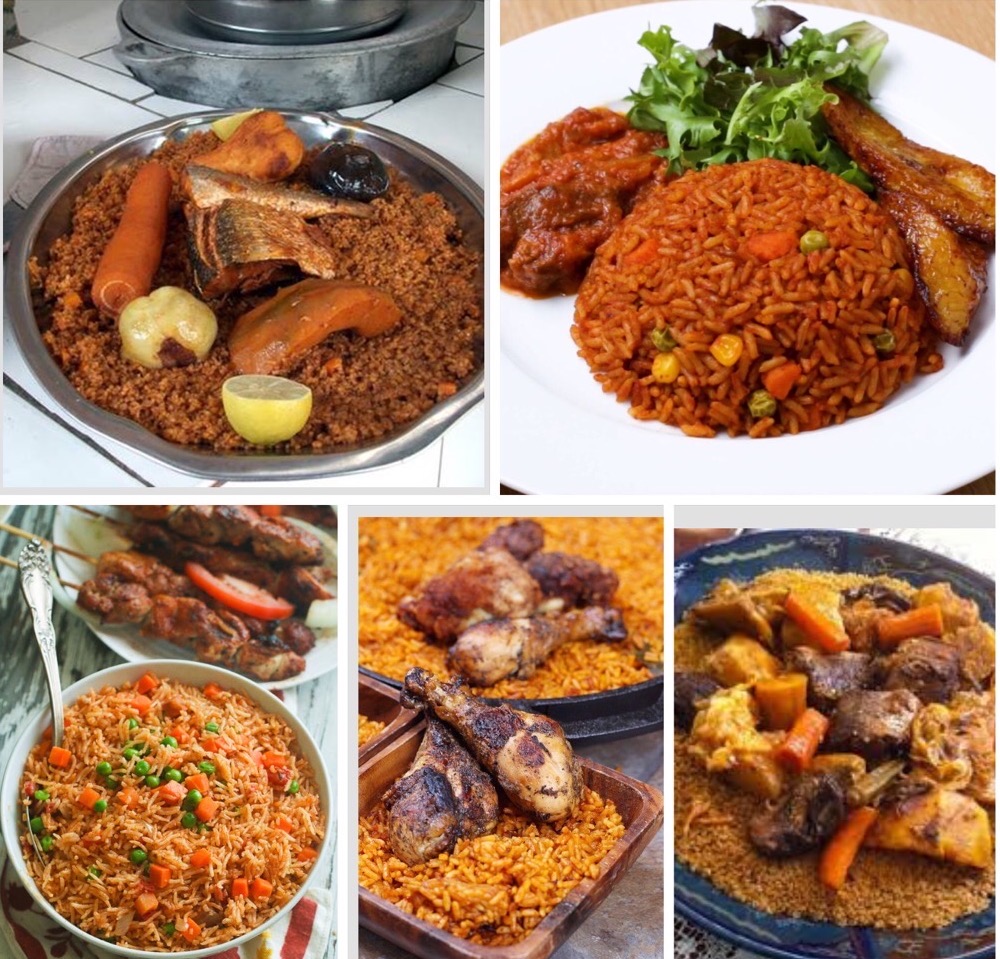
As Jollof Rice is becoming more internationally renown, Muritala Bakare finds out why West Africans are so passionate about this meal, and the controversy over which country’s Jollof Rice is the best.
Jollof Rice is one of West Africa’s most palatable foods, and everyone especially those in the diaspora enjoys boasting of its mouth-watering taste. Ghanaians, Nigerians, Gambians and Senegalese have all claimed ownership of it.
Kofi Adjei, 32, a chef at the Agrobeso African Cuisine in Peckham, says the dish sells like hotcake. “The Jollof is not a joke. People who come here most of the time order it more than any other meal,” he says.
The origin of its name, Jollof Rice, which is also known as Benachin (meaning: ‘one pot’) can be traced to the Wolof tribe who can be found in today’s Senegal, Gambia and Mauritania.
However, Jollof Rice was popularised by Ghanaians and Nigerians. There are different twists to the way it is cooked and the style of cooking depends on which part of West Africa you are from.
“There is no one way of cooking it. Some people would boil the rice before adding tomatoes and stocks, while others would steam it,” says Kofi.
Cooking it is a passion for Kofi just as it is for many of his Ghanaian friends. “We are very passionate about it, and we believe that a party without Jollof rice in the menu is a useless party. There is no point attending. That’s how serious it is,” he says with a smile on his face.
About a mile from Kofi’s restaurant lies the Lolak Afrique on Choumert Road, a Nigerian food outlet with a lot of food to eat. Although there are many items on the menu, chef Funmi Alade, 28, agrees that Jollof rice is the most sought-after meal in her cafeteria.
So what’s the driving force behind the love for this ‘sacred’ meal?
“It is everything. Jollof Rice has been around for a long time, and the combination of different flavours with a variety of ingredients set it apart from other meals. The fact that you can make it with a lot of twists is awesome,” says Funmi.
“Some people would cook it with meat or fish, and add a bit of plantain or salad to it. I have even seen people doing a vegetarian version.
“I grew up eating it, and words can’t explain the beauty of enjoying a sizzling dish,” she explains.
Today, there are huge numbers of people cooking the meal with their own different varieties. You just have to check online to see an army of Jollof enthusiasts.
Mainstream media like the BBC and other magazines now feature it in their food sections.
Abiola Jimoh, a foodie, says social media is flooded with images of self-proclaimed chefs, who boast of their Jollof-cooking talents to their followers.
“From Facebook to Instagram and Twitter, the debate over which country cooks the best Jollof is endless. Most times, this friendly rancour is between Ghanaians and Nigerians because they are the most passionate about it.
Recently, Sierra Leoneans and Cameroonians have also joined the contest. They trade banter and tease each other a lot,” she says.
It is even worse when outsiders try to join the debate. Popular British chef, Jamie Oliver caused uproar few years ago when he tried his hands at cooking this contentious African food. For once, Jamie at least managed to unite West Africans in condemning him.
“People were attacking him, and said he was trying to hijack their meal and appropriate it to Europeans and all sort of silly accusations,” remembers smiling Abiola.
One of CNN correspondents, Richard Quest, visited Nigeria last year and nearly got the information minister, Lai Muhammed sacked, after the minister claimed Senegal cooked the best Jollof rice. “Nigerians were calling for his head,” she recalls.
Prince Charles was cautious not to allow the issue derailed his visit to the region.
The prince remarked: “Having also visited The Gambia and Ghana over the past week, our visit to Nigeria may perhaps provide an invaluable opportunity to compare — if one ever dares do such a thing! — the relative merits of each country’s Jollof Rice.
Abiola agrees with the Prince. “In truth, it is difficult to say which country cooks it best, but whichever country’s Jollof you eat, one thing is for sure, you will never regret eating it,” she says.
By Muritala Bakare
This article was first published on Gambiana on December 17, 2019










Recent Comments